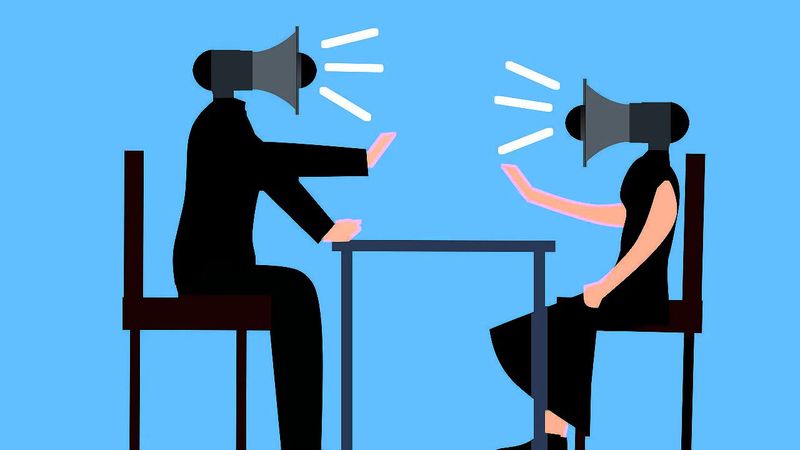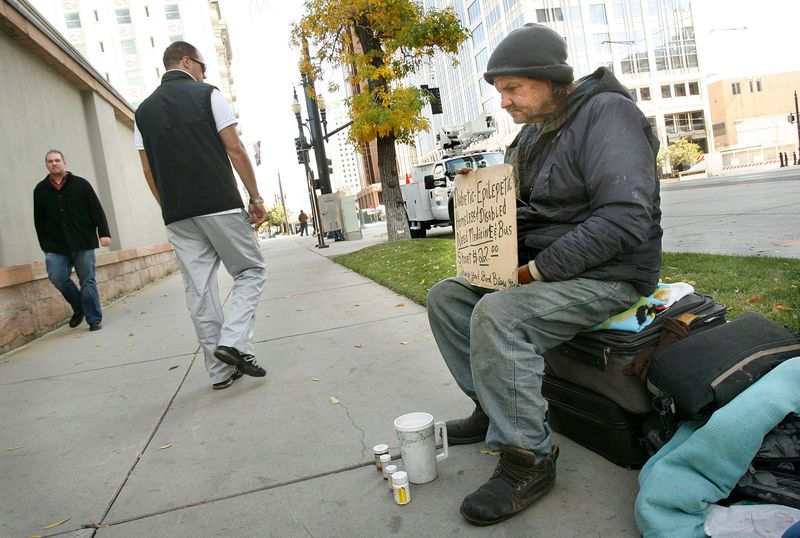Empathy is the ability to understand and share the feelings of others. It’s a crucial part of human interaction and connection. However, some individuals may struggle with this vital emotional skill. Recognizing the signs of a lack of empathy can lead to personal growth and improved relationships. This blog post explores eight indicators that one might be lacking in empathy, helping you identify areas for emotional development.
1. Rarely Listening to Others

Ever find yourself tuning out when others speak? This might be a sign of empathy deficiency. While conversations flow, your mind wanders off to distant thoughts, neglecting the emotions being shared.
Listening is more than hearing words; it’s about grasping feelings and perspectives. This absence of engagement can make others feel invalidated and unheard, straining relationships.
Consider this: genuine listening helps build trust and rapport. By focusing on the speaker, you reflect empathy and understanding, essential traits in meaningful interactions. So, next time, try immersing yourself in the conversation—both mind and heart.
2. Lack of Emotional Responses

Do emotional scenes leave you indifferent? A blank expression amidst laughter and tears might indicate a lack of empathy. Such emotional detachment can hinder connection with those around you.
Empathy allows us to mirror emotions, creating bonds and fostering intimacy. Without it, relationships might feel superficial, lacking depth and resonance.
Imagine watching a movie—everyone engrossed, except you. This disconnect can alienate you from shared experiences, leaving you isolated. Cultivating empathy involves embracing emotions, yours and others, leading to a richer, more connected life.
3. Difficulty in Understanding Others’ Perspectives

Ever feel lost in a group discussion, unable to grasp differing viewpoints? This could signal empathy challenges. Understanding others requires stepping into their shoes, a task that empathy makes easier.
Without this skill, conflicts arise, and relationships suffer. Conversations become battlegrounds rather than opportunities for growth.
Consider the benefits of embracing diverse perspectives. Empathy can transform misunderstandings into insights, building bridges instead of walls. By valuing different opinions, you cultivate a more harmonious environment, enriching your personal and professional interactions.
4. Inability to Show Compassion

Do you find it hard to show compassion, even in situations that call for it? This may reflect an empathy gap. Compassion is empathy in action, and its absence can lead to perceived coldness.
Ignoring chances to show kindness distances you from others, creating barriers instead of connections. Empathy fosters the warmth that helps build community and support.
Imagine passing by a charity event, indifferent. This lack of engagement not only affects others but isolates you from shared humanity. Nurturing compassion enriches your life and deepens your bonds with those around you.
5. Judging Others Harshly

Quick to judge when someone errs? This harshness might reflect low empathy levels. Empathy encourages understanding rather than judgment, fostering forgiveness and patience.
Criticism without empathy can damage relationships and hurt feelings, leaving scars that linger. By judging less and understanding more, you promote healing and growth.
Picture this: a friend struggles, and instead of condemning, you offer support. Empathy enables you to see beyond mistakes, appreciating the person behind them. Embracing this approach nurtures love and respect, essential elements of lasting bonds.
6. Struggling with Emotional Connections

Feel isolated even in a crowd? Struggling to connect emotionally might point to low empathy. Such disconnection can make gatherings feel lonely, despite the presence of others.
Emotional connections require openness and vulnerability. Without empathy, building these connections becomes a daunting task, often leading to feelings of alienation.
Visualize yourself at a vibrant party, yet feeling alone. This lack of connection not only affects social life but can impact mental well-being. Cultivating empathy can transform isolation into companionship, enriching your interactions with warmth and sincerity.
7. Indifference to Others’ Needs

Ever overlook a colleague’s struggle at work? Indifference to others’ needs is a sign of empathy deficiency. Recognizing and responding to these needs is essential in fostering supportive environments.
Ignoring such needs can lead to resentment and decreased morale, affecting teamwork and collaboration. Empathy encourages us to lend a helping hand, building stronger, more cohesive teams.
Imagine a workplace where everyone’s needs are met with understanding. By nurturing empathy, you contribute to a culture of support, enhancing both personal satisfaction and collective success.
8. Lack of Patience with Others

Do you often find yourself losing patience with others? This might indicate an empathy gap. Patience is a virtue closely tied to empathy, allowing for understanding and tolerance.
Impatience can lead to conflicts and misunderstandings, damaging relationships and creating stress. Empathy helps us pause and consider others’ feelings, promoting harmonious interactions.
Picture a parent scolding a child in a bustling supermarket, missing the chance for a teachable moment. By fostering empathy, you replace frustration with compassion, paving the way for more fulfilling and peaceful relationships.

Mother of three and a primary school teacher. I’ve always loved being around children and helping them, so I chose my path as a teacher. It is sometimes hectic with three children, but I am 100 percent into it and wouldn’t change it for anything in the world.

